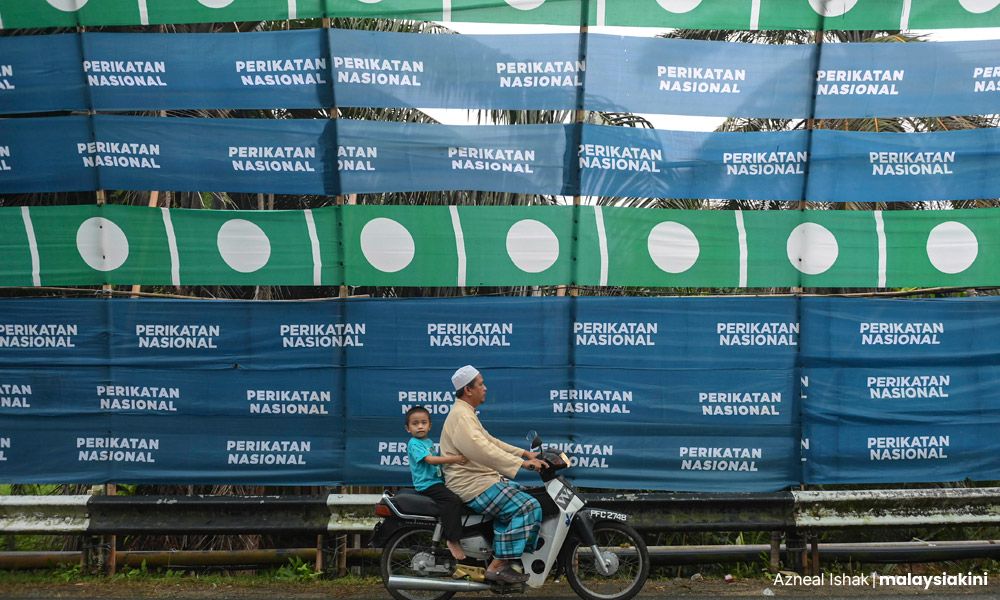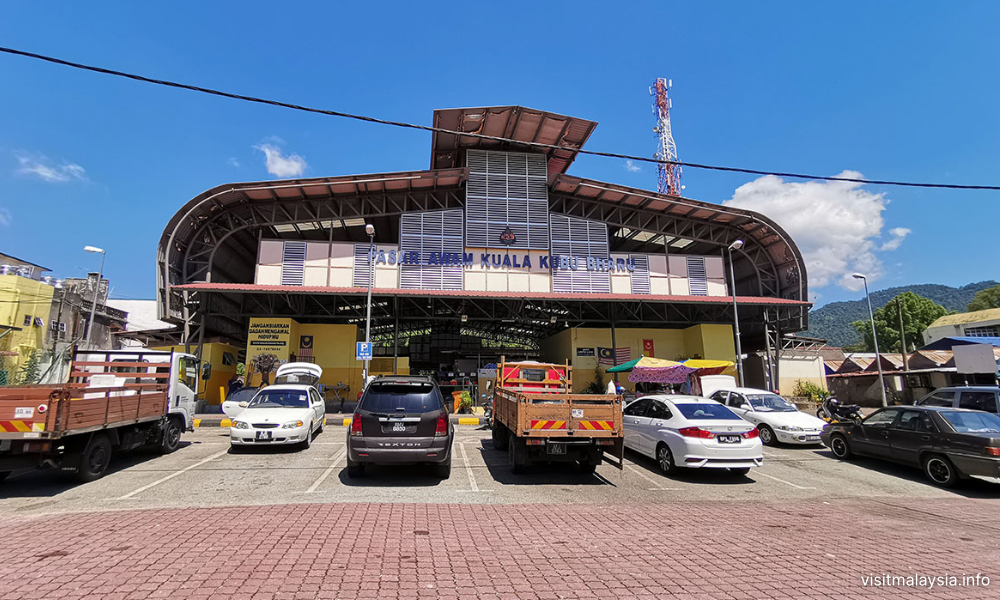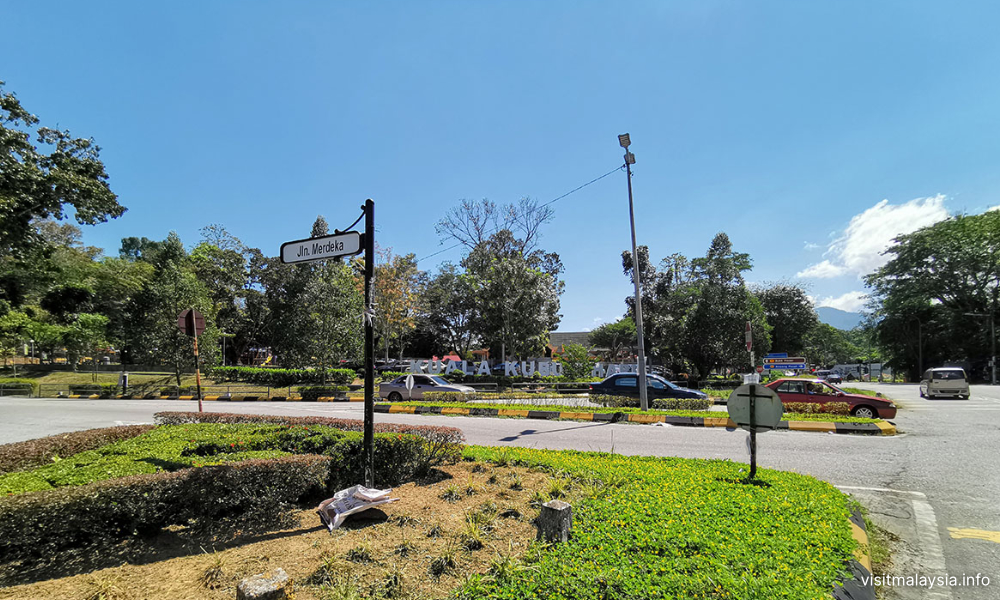In yesterday’s article, I outlined three possible scenarios for voter turnout and support for the coalition government candidate in the upcoming by-election in Kuala Kubu Baharu, out of which there is only one scenario where the incumbent manages to defend the seat.
In this concluding part of this article, I will outline some of the likely and desired parameters of contestation during the campaign.
At the time of writing, no candidate has been announced by the DAP or by Perikatan Nasional. It is likely Gerakan will be given the opportunity to field a candidate given that Hulu Selangor MP Harumaini Omar, is from PAS and the assemblypersons for the other two state seats - Hulu Bernam and Batang Kali - are from PAS (Mu’izzuddeen Mahyuddin) and Bersatu (Muhammad Muhaimin Harith Abdullah Sani), respectively.
Gerakan fielded a Chinese candidate, Teoh Kien Hong, in the 2023 state elections and it has been reported that the party has submitted three names as possible candidates, including a Malay candidate. DAP will be announcing its candidate on April 24.
From a campaigning perspective, it will be far easier for the opposition to attack the track record of the government since the 2022 general elections.
The playbook will not be unfamiliar since we (the DAP) would have used this countless times when we were the opposition campaigning in a by-election.

We would ask the voters to cast a protest vote against the government knowing that the results won’t affect who is in power at the state and federal levels.
This would be an opportunity to “teach those in power a lesson” not to take the voters for granted and to “punish” them for their failure to deliver their promises on issues like institutional reform and bringing down the prices of goods and services.
We would point to the impending hikes in diesel and petrol prices as signs that this government doesn’t care rakyat’s welfare.
In some ways, PN can take the moral high ground by saying that they are not the ones trying to “free” former prime minister Najib Abdul Razak from jail nor are they trying to rile up racial and religious sentiment by asking for boycotts against the likes of KK Mart.
Despite the hard work which many of my colleagues in government have put in to try to bring about positive changes in their ministries, the rhetoric of the opposition will resound among the voters, especially those in Kuala Kubu Baharu, who are not likely to have felt the effects of some of the positive policies delivered by the government.
Of course, the current administration also must take some blame for not having a coherent narrative (especially on the economy), not communicating its narrative coherently and consistently and not taking proactive actions to address certain sensitive issues including “sock-gate”.
In addition, the opposition has the advantage of tailoring its attacks to different groups of voters. To the Malay voters, PAS and Bersatu will remind them of some of the statements made by certain DAP leaders in recent months to instigate them not to support the DAP candidate.
To the non-Malay voters, Gerakan will point to the failure to live up to the promises made by the DAP to deliver changes and reforms and to protect the interests of non-Malays.
MCA 1.0, ‘MCA 2.0’ narrative
The accusation of DAP being “MCA 2.0” could be made even more powerful by the narrative that MCA 1.0 and “MCA 2.0” are both part of the unity government!
This narrative could possibly resonate more with the younger non-Malay voters who are more likely to be anti-establishment.
One should also not discount the effect of MCA and MIC possibly not campaigning for the DAP candidate since some of the older Chinese and Indian voters in a semi-urban district like Kuala Kubu Baharu would still have some historical ties and affinity with both BN parties.

So, how then can the coalition government conduct a successful campaign to overcome these challenges?
A successful campaign needs to be conducted at two levels – at the local level and the state/national level.
There are no “ideal” candidates that the DAP can position as someone who knows the local issues faced by Kuala Kubu Baharu voters and who is also capable of withstanding the national media scrutiny during a high-profile by-election.
For the record, I do not have any insights into who DAP would likely select as the candidate although I have my own recommendations which I have expressed to the Selangor DAP leadership.
One of the challenges which the candidate will have to face at the local level is a lack of leadership and servicing in Kuala Kubu Baharu because of the need for the late Lee Kee Hiong, the former assemblyperson, to seek cancer treatment after 2018 - impeding her ability to go to the ground in different areas of the constituency.
To win the trust of and connect with the local communities in the area which have different interests and needs, the candidate will have to enlist community leaders who are trusted and have good reputations who can be part of his or her team after the by-elections, assuming a victory.
Ideally, the candidate will be able to showcase a team comprising possible special officers from the Malay, Chinese and Indian communities whom he or she will lead as part of the Kuala Kubu Baharu service centre.
Looking for right people
This will be a challenge as many younger and dynamic people would want to seek career pathways outside Kuala Kubu Baharu rather than work there as a politician’s special officer.
However, there are always diamonds in the rough if we look hard enough, especially with the assistance of the local DAP and Harapan leaders.
At the same time, the candidate must also be able to articulate a “manifesto” to provide solutions to local issues such as traffic and infrastructure problems and present a “vision” of how to develop Kuala Kubu Baharu as a destination for tourism, light manufacturing and other economic activities.
This manifesto should be relatively simple, and the candidate must be able to articulate it with specific examples and references that the local population can relate to.

At the state and national level, there needs to be a cohesive narrative to accompany the stream of ministers, deputy ministers and state leaders who will be heading to Kuala Kubu Baharu to campaign.
The handing out of electoral “goodies” and the organisation of various government programmes will not be unwelcomed by the local population but make no mistake, it will not necessarily win the by-election for the DAP candidate.
If this was the case, then the BN would not have lost the by-elections in Lunas in 2000 and Sibu in 2010 - or Umno would not have won the Semenyih by-election in 2019 and MCA would not have won the Tanjung Piai by-election in 2019 campaigning as opposition parties.
What is needed is a more comprehensive value proposition not just to the voters of Kuala Kubu Baharu but to the voters of Hulu Selangor to develop the entire district - with the intention of winning back the parliamentary seat as well as the other two state seats in the next parliamentary and state elections.
In fact, this kind of larger and more comprehensive “manifesto” would be a more responsible way of campaigning during a by-election even though the benefits would not be immediately felt.
It will incentivise political parties to think more strategically and on a longer-term basis based on sustainable policies and plans, rather than focusing on short-term handouts, which have been and will continue to be criticised by election watchdog bodies like Bersih (and rightly so).
With the economic reinvigoration of Hulu Selangor based on industrial clusters in nearby Tanjong Malim (in Perak) and Serendah / Rawang; with higher value-added tourism products leveraging on outdoor activities and higher-end homestays, which can provide higher paying services jobs; with the deployment of smart agriculture projects on a smaller scale; with the inclusion of the Orang Asli communities into suitable economic activities; all of this will result in longer-term development which can be felt by the local population.

This can also lead to more people moving to Hulu Selangor to start businesses and to take up higher paying jobs and perhaps also registering as new voters who will be more likely to support progressive and pro-active government policies at the state and national levels.
This kind of campaign requires strategic thinking and action but in reality, this will not be easy to carry out. But even if some of this thinking and action can feature in this campaign, it will be a positive move in making us a more mature and progressive democracy.
More importantly, it will be beneficial to the voters and residents of Kuala Kubu Baharu and Hulu Selangor in the long run. After all, isn’t this what elections are supposed to be about? - Mkini
ONG KIAN MING is the former Bangi MP and former deputy international trade and industries minister.
The views expressed here are those of the author/contributor and do not necessarily represent the views of MMKtT




No comments:
Post a Comment
Note: Only a member of this blog may post a comment.